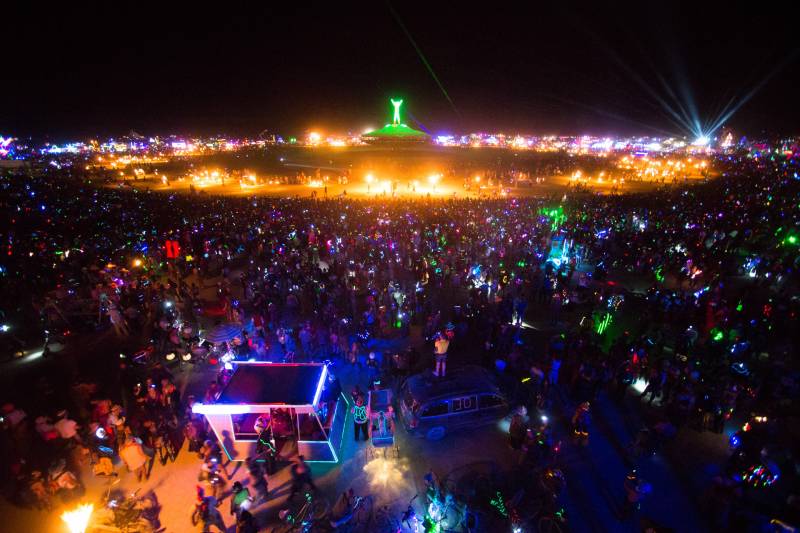Burning Man organizers sued the U.S. Bureau of Land Management to recover millions of dollars they say the government has overcharged them in fees over the past seven years at the counter-culture celebration in the Nevada desert.
Black Rock City LLC, the nonprofit that produces the annual Burning Man event, filed the lawsuit Dec. 13 in U.S. District Court in Washington.
Organizers told the Reno Gazette Journal they're tired of waiting over the past four years for the bureau to provide justification for the nearly $3 million it charges annually for a permit to hold the 80,000-person event in the Black Rock Desert about 100 miles north of Reno.
